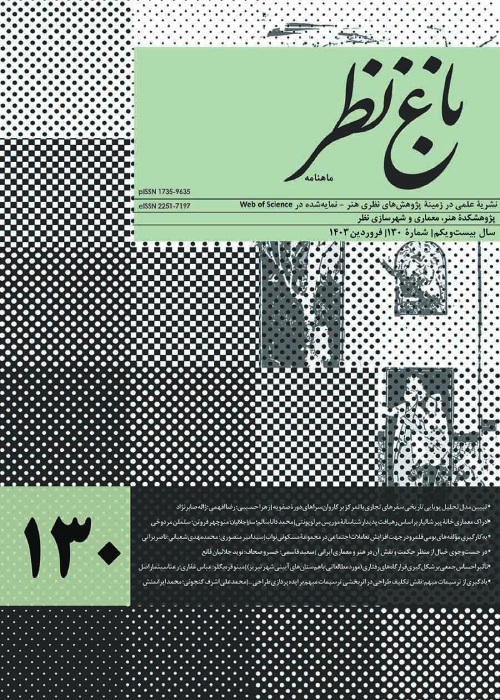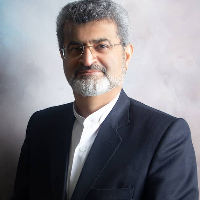Evaluation of Iran Architecture Knowledge on Industrial Complexes; In Order to Discover the Challenges and Provide Developmental Strategies
Author(s):
Abstract:
The present paper has notified that the evaluation of architecture knowledge for industrial complexes helps identifying its development challenges. Thinking about the components of architecture knowledge development caused the evaluation to be occured in three sections of theoretical knowledge (or theoretical productions), knowledge transition (or training programs), and practical knowledge. Since the nature of the mentioned triad was different, the evaluation method of each was chosen in relation to their substantial features. As a result, evaluation of theoretical areas, due to its written nature, is accompanied by content analysis method. In this section, scientific research-based articles (published in fifteen authentic architecture journals, until winter 2014), 2500 selected books, M. A. theses (conducted from 2001 to 2010 in University of Shahid Beheshti), and Ph. D. dissertations (completed in domestic universities until 2012) were studied to estimate the quantity of production knowledge in terms of the architecture of industrial complexes. It is noteworthy that this evaluation took place compared to six selected functions i.e. landscape, residential, religious, healthcare, educational, and administrative. In transitive knowledge section, the mentioned evaluation was dedicated to the analysis of programs contents, orientations, fields of study, and courses, presented in three levels of BA, M. A., and Ph. D.. Furthermore, in order to know about the status of practical knowledge, the orientation of architecture competitions (including periodical competitions and those, taken part from 2007 to 2009) were evaluated. Also selected samples of the existing industrial units (i.e. 63 industrial units in Caspian Industrial Park, Qazvin) were studied. Results showed that architecture knowledge of industrial complexes, compared to other functions, had the least theoretical production as well as transitive training (quantitative challenge). Despite such circumstances, in the practical area it enjoyed some quantitative growth and requires qualitative attention (qualitative challenge). What is more, the development of architecture knowledge in terms of industrial complexes lacks any coherent structure, chiefly growing in a local and discrete manner. Results showed that the mentioned challenges are dealt with by integrating the mentioned triad and adopting practice-to-theory strategies (as reverse engineering). The research has emphasized that developing architecture knowledge for industrial complexes can be done by programming as a matrix of supplementary and evolutionary components, comprising the triple areas.
Keywords:
Language:
English
Published:
Bagh-e Nazar, Volume:13 Issue: 41, 2016
Pages:
5 to 18
magiran.com/p1592691
دانلود و مطالعه متن این مقاله با یکی از روشهای زیر امکان پذیر است:
اشتراک شخصی
با عضویت و پرداخت آنلاین حق اشتراک یکساله به مبلغ 1,390,000ريال میتوانید 70 عنوان مطلب دانلود کنید!
اشتراک سازمانی
به کتابخانه دانشگاه یا محل کار خود پیشنهاد کنید تا اشتراک سازمانی این پایگاه را برای دسترسی نامحدود همه کاربران به متن مطالب تهیه نمایند!
توجه!
- حق عضویت دریافتی صرف حمایت از نشریات عضو و نگهداری، تکمیل و توسعه مگیران میشود.
- پرداخت حق اشتراک و دانلود مقالات اجازه بازنشر آن در سایر رسانههای چاپی و دیجیتال را به کاربر نمیدهد.
دسترسی سراسری کاربران دانشگاه پیام نور!
اعضای هیئت علمی و دانشجویان دانشگاه پیام نور در سراسر کشور، در صورت ثبت نام با ایمیل دانشگاهی، تا پایان فروردین ماه 1403 به مقالات سایت دسترسی خواهند داشت!
In order to view content subscription is required
Personal subscription
Subscribe magiran.com for 70 € euros via PayPal and download 70 articles during a year.
Organization subscription
Please contact us to subscribe your university or library for unlimited access!



